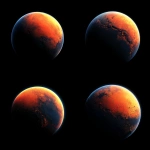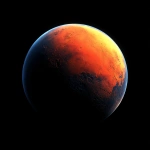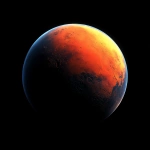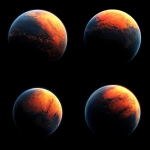Explore the Best AI Image Gallery
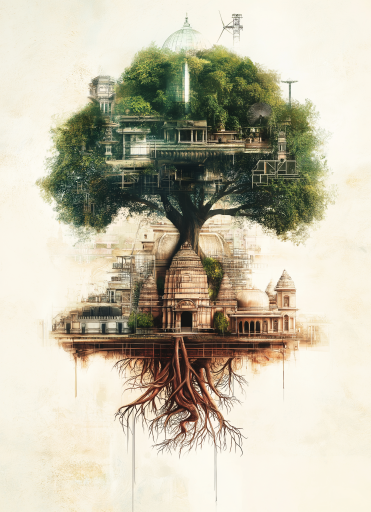
Transforming Marketing with AI-Generated Images
In today's fast-paced digital world, where visual content is dominant, artificial intelligence (AI) is profoundly reshaping the marketing landscape. AI-generated images have emerged as a revolutionary tool, providing businesses with innovative ways to capture attention, convey messages, and drive engagement. This blog post delves into the various facets of AI images in marketing, including their impact on the creative industry, potential applications, ethical concerns, and future trends.
The Impact of AI on the Creative Industry
The creative industry has always been at the forefront of adopting new technologies, and the advent of AI-generated images is no exception. These algorithms can produce stunning visuals in ways that were previously unimaginable. With a few prompts, marketers can create high-quality images tailored to their specific needs, thereby shortening the creative process.
This innovation redefines the role of traditional artists and designers. Rather than replacing them, AI facilitates a collaborative approach where human creativity and machine efficiency combine. For instance, graphic designers can utilize AI tools to generate drafts or explore design variations much faster, allowing more time for refinement and conceptual creativity.
Potential Uses of AI Images in Marketing
AI-generated images can be employed in several marketing contexts, including:
- Social Media Content: Brands can produce striking visuals for social platforms without relying on costly photoshoots.
- Product Visualization: Marketers can create realistic representations of products that are still in development, giving stakeholders a tangible idea of the final output.
- Personalized Advertising: AI tools can craft tailored ads by generating images based on user data, significantly enhancing engagement and conversion rates.
- Email Marketing: Eye-catching visuals generated through AI can improve open rates and drive click-through rates in email campaigns.
- Website Design: Dynamic images based on user preferences and browsing history can create a more personalized online experience.
Ethical Considerations
While the benefits of AI-generated images in marketing are substantial, there are ethical considerations that must be addressed. Issues of copyright, authenticity, and bias come to the forefront when discussing the implications of using AI in creative processes.
One significant concern is copyright ownership. When AI generates an image, who owns the rights to that artwork? Is it the developer of the AI, the brand utilizing the images, or the AI itself? As the law struggles to catch up with technology, marketers must tread carefully to avoid potential legal pitfalls.
Moreover, the authenticity of AI-generated content can lead to a lack of trust if consumers discover that they are engaging with images not produced by human hands. It’s crucial for brands to be transparent about the use of AI in their creative processes to maintain consumer trust.
Bias is another concern; if AI algorithms are trained on non-diverse datasets, the images generated may perpetuate stereotypes or overlook minority representations. Companies must ensure that their AI systems are inclusive and reflect the diversity of their audience.
Future Trends in AI Image Generation
As AI technology continues to evolve, its applications in marketing will likely expand. Here are some potential future trends:
- Enhanced Customization: Future AI models could provide unprecedented levels of personalization, allowing brands to create highly individualized visual content that resonates with their target audience.
- Improved Realism: Ongoing advancements will lead to even more lifelike images, making it challenging for consumers to differentiate between AI-generated and real photographs.
- Interactivity: Integration of AI-generated images with AR (augmented reality) could enhance customer experiences, allowing users to interact with products in virtual environments.
- Collaboration Tools: More sophisticated tools will enable seamless collaboration between creatives and AI, enhancing creative workflows and outcomes.
Conclusion
AI-generated images represent a significant leap forward for the future of marketing, blending technology and creativity in unprecedented ways. By understanding the potential uses, ethical considerations, and future trends associated with AI, marketers can harness these tools effectively while navigating the complexities they introduce. As we continue to explore the intersection of technology and creativity, one thing is clear: AI-generated images are not just a passing trend; they are paving the way for the future of marketing.


](https://images.ai-img.art/thumbnails/150/f681667fd0b406aa039bcbd7b3b9bbff2d7cb23469586ad4416efa36f2392b0b.webp)



](https://images.ai-img.art/thumbnails/150/400c7a6b2d2f19453f8e45c2cdc8fd0f10507d0abe6722476f59c6dd31574c0b.webp)

](https://images.ai-img.art/thumbnails/150/3dd8240adaef13cc99a30036d8e4c6e6925de454f55ec26d1f4b2eb38b9db4eb.webp)









